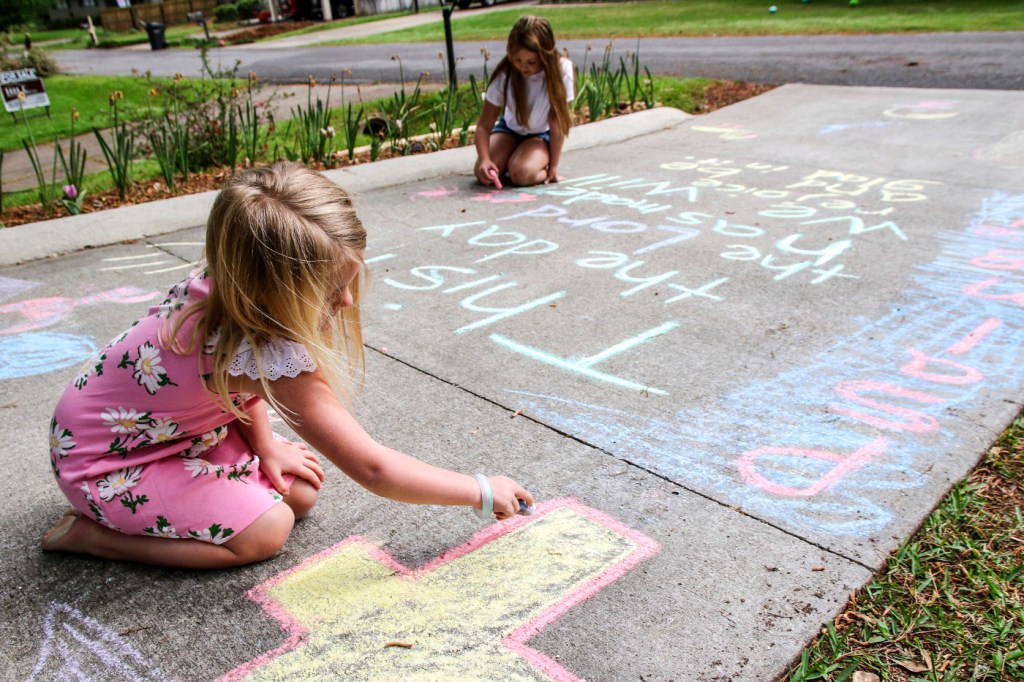Working from home during the COVID-19 pandemic? It’s an opportunity to help your kids get along.

As millions of people around the world isolate themselves to protect their families from COVID-19, myriad legitimate challenges await inside their homes.
For some parents, one of those challenges might be caring for their children, especially siblings who don’t always get along.
“As we spend such uninterrupted time with one another, where our options are pretty limited, things can get frustrating, they could get boring, and we could see some conflict,” says Laurie Kramer, a professor of applied psychology at Northeastern.

Photo by Adam Glanzman/Northeastern University
Still, Kramer says, being stuck at home presents a unique opportunity for siblings to learn how to better get along with each other. Knowing how to handle conflicts, she says, is an invaluable skill that people need as they grow into adulthood.
And, she says, relationships between siblings could be some of the safest training grounds, as they offer a unique opportunity to deal with conflicts that children might not necessarily get from other relationships.
“You can have a knock-down, drag-out fight with a brother or sister, and in the morning, they’re still going to be at the breakfast table sharing cereal with you,” Kramer says. “If that same type of conflict happened with a friend, that might have ended the relationship.”
Not to say that children who grow up without a sibling can never learn these things.
“It’s maybe just a little bit more convenient to learn these things with a brother or sister, because they’re living right there with you,” she says.
Kramer, who joined News@Northeastern for a live Facebook interview, offered her insights into sibling relationships and tips for coping with sibling rivalry during the pandemic.
“It’s also a time of opportunities,” she says. “How many times in our lives do we really have such an extended period of time to spend with our family members?”
What has your research found about how a parent intervention can have an impact on children and their relationships with each other?
A lot of times parents worry about certain things that they think might make a difference in their kids’ relationships. So sometimes parents worry that’s because they’ve got two boys, or a girl and a boy, or because of their age differences.
It actually turns out from research that some of those things don’t really make that much difference. It doesn’t account for that much when we really try to explain and predict how well kids are going to get along with one another. And that’s a good thing, because we really can’t do anything about that anyway, right?
But it turns out from research that we’ve seen that there are many things that parents can do every day that could potentially make a difference. They’re small things, usually, but they’re the sorts of things that—once parents think about what their goals are for their children’s relationship, how they truly would like them to interact together—might lead them to different types of parenting strategies with their children.
What are some strategies that parents should have handy, especially now?
We know that helping children learn a little bit about perspective-taking, so how to see the world or see a problem not only in terms of what you personally want, but to take into account your sibling’s point of view as well, is an incredibly powerful tool for helping kids avoid and even resolve some conflicts. Some other things that we’ve also found to be really important are helping children develop a vocabulary to talk about what’s bothering them about their brother or sister, or their actions.
All of those things are really the foundation for learning good skills for managing conflicts. That, at the end of the day, is what we want to help kids develop. The foundation throughout all of that, however, is helping kids have fun with one another, so that there’s really something positive there that can draw them together, even when sometimes they don’t feel so great about one another.
I would just say perspective-taking. Wouldn’t you love it if more people in the world thought about things not only in terms of what they want or need, but started to think about others personally octaves as well? I think that could be so powerful.
How might that be a little different than the approach they have now?
If you look at a lot of the older parenting manuals that are out there, they often encourage parents not to get involved in siblings fights. In fact, there was this idea that siblings were just fighting in order to get parents attention. So if parents intervened, and got in the middle of it, basically what they would be doing would be encouraging kids to fight more. It turns out that the research really does not support that. And I’ve talked to lots of kids, and none of them ever told me that they fought in order to get their parents to pay attention to them.
What’s important is for parents to think about what skills their children do have at this point, and encourage them to use that. So if they know that their kids are very capable of playing nicely with one another and have some basic tools for resolving issues, maybe all they need to do is remind children to use those skills.
But we do know that for some of the tougher things that siblings encounter, like long-term conflicts, we know that for children typically under the age of eight, they don’t often know how to manage those complex conflicts. It’s really important for parents not to be afraid to engage with kids around these sorts of things, but to be a guide, to be a coach, and have some open conversations about what’s going on and what could happen that would help manage the situation.
Are there any of those hands-off strategies (or even hands-on) that you might recommend against?
What we know that doesn’t work very well from research is going in and threatening kids when they’re fighting, or punishing kids when they’re fighting.
I’ve done some research where we had kids wired up with wireless microphones, so that the parents could listen to everything that was going on. And we watched to see how parents reacted when children actually did get in a fight with one another. Did parents intervene? If they did, what did they do? Or did they just sort of let kids work it out on their own? We saw that when parents didn’t intervene, and just let things happen, kids sort of saw that as permission to keep fighting. And we saw that kids did continue to keep fighting. When parents came in and threatened with punishment, or did punish kids, that didn’t really help either.
Parents in a separate questionnaire told us they thought that what was effective was actually coming in, talking to the kids about what was going on, getting each of them to talk about their side and their perspectives about what was happening, and helping them come to some sort of conclusion about what they might try to do to resolve that conflict. That’s the situation that will lead to positive outcomes for children, and that’s what we encourage parents to try to do.
Your research has had a particular focus on age and when it’s best to foster these strategies. Can you talk about that?
One of the things that we’ve learned is that however that sibling relationship starts out, whether it’s positive or negative, chances are it’s going to continue along those lines over time. That’s great if you start out with a really positive relationship, but not so great if you don’t. And what we saw was that engaging in some kind of intervention program like the More Fun with Sisters and Brothers program or counseling, therapy, education—anything like that—could certainly help to change that pattern, so that children learn to engage more positively with one another. I found that starting out as early as we can with families is the best, because that can help establish some more positive interaction patterns over time. But it’s never too late. These are skills that can be learned at any point.
Do you have any immediate actionable steps that a parent can take to make their lives a little bit easier as they adjust?
We’re kind of in a crisis. And I always think that crises offer opportunities. This is a moment in time that no one in your family will ever forget. We’ll never forget spending so much time together, having access to each other in this way. It’s a great opportunity for parents to think a little bit about how they want to take advantage of that opportunity right now, particularly in terms of their kids’ relationship with one another.
Maybe this is a great time to help your children do something together that you wouldn’t ordinarily have time to do—maybe cooking a recipe that was handed down from a grandparent, or taking care of your pet together, or some project around the house, something different that might pull the kids together.
So you actually have more opportunities to do that now. Will it come with a lot of conflict and frustration and annoyance and irritation? Probably. But that’s okay. Don’t be so afraid of that, if possible. As long as it’s not hurtful, emotionally or physically to children, there’s ways to manage that.
For media inquiries, please contact media@northeastern.edu.





